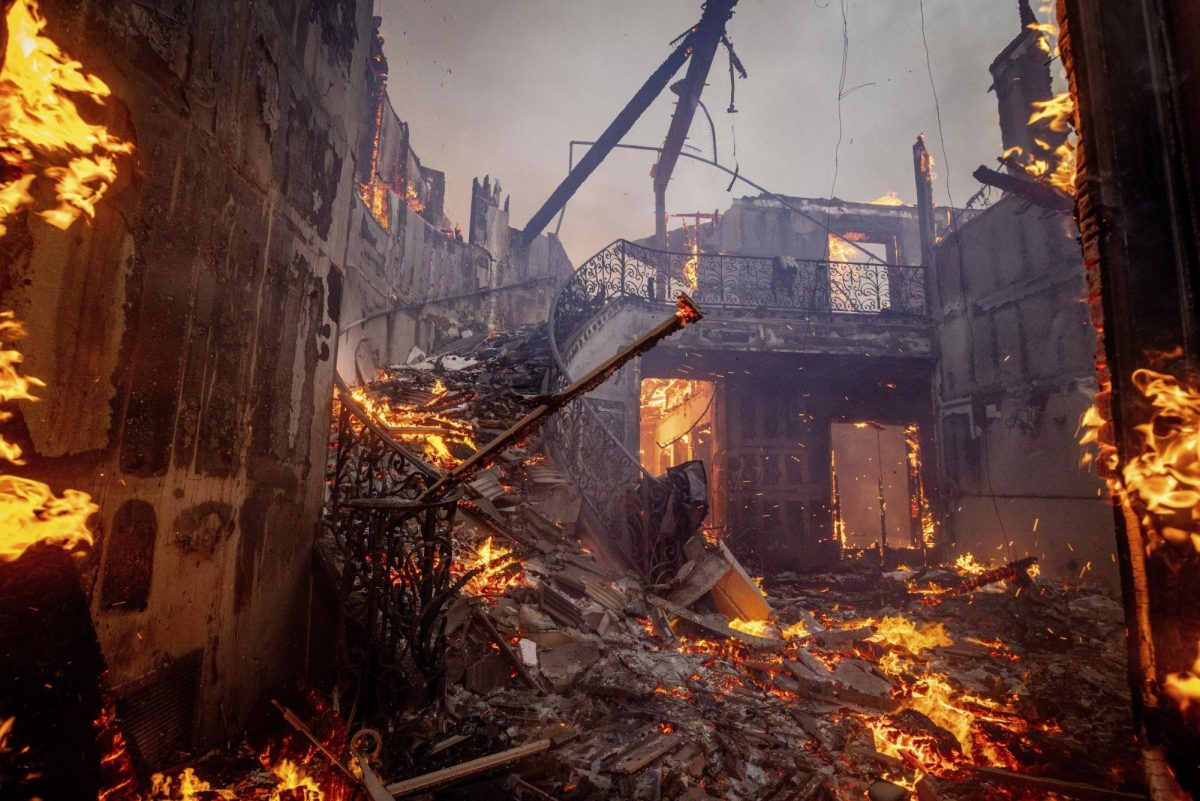Los Angeles has always been a city of change. Businesses come and go, celebrities move in and out and the headlines are ever-changing. The City of Angels has been through a lot, but the recent Palisade fires may be the city’s final straw.
While I didn’t live in L.A. proper, I grew up in the county and went into the city enough times to know it well. That connection I have with the county makes it all the more heartbreaking to watch it go up in flames.
This isn’t L.A. County’s first fight with wildfires, and it certainly won’t be its last, but this month’s blazes have struck an unusually deep blow, both physically to the thousands of now scorched acres of land and socially to the city proper.
Southern California is no Midwest when it comes to agriculture, but the outskirts of L.A. County is peppered with small farms and big ranches, all at risk of turning to ash and putting many livelihoods down for good.
The inferno sweeping the county has burned more than the rural areas, however. According to the Los Angeles Conservancy, more than 40 historical properties in L.A. County are damaged or destroyed.
Such landmarks burned by the wildfires include Palisades Charter High School, featured in films like “Teen Wolf,” “Carrie” and “Freaky Friday,” as well as the Pacific Palisades Business Block, a historical site on Sunset Boulevard.
While these buildings can be rebuilt, the history within them is lost. It’s a similar situation to the ship of Theseus; if all the parts are replaced, is the whole the same?
Even the parts of Los Angeles untouched by the fires will never be the same after the flames are extinguished. The celebrity life of Beverly Hills, the economy of the bustling downtown and the many tiny cultures of the city’s neighborhoods will be changed for one simple reason: people are afraid.
They’re afraid that another, potentially worse fire could break out. They’re afraid that their insurance could, once again, be canceled right before a disaster, leaving them both homeless and in debt. And those insurance companies that pulled the rug out from their customers are afraid of losing just a sliver of annual profits.
Even celebrities, with their dozen mansions and rock-solid insurance, are scared. I mean, what’s the point of buying a multimillion-dollar villa in Malibu when it could go up in flames when the winds blow a little too strong?
I predict that this fear can lead to one outcome: people leaving L.A. for more stable, safer cities.
If many people do move out of the city or county, there will be an immediate and drastic effect on the city’s economy, which will already be hurting due to the fire damages, which AccuWeather estimates to be $250 billion.
Despite the steady flow of twenty-somethings looking to make a name for themselves in Hollywood, the workforce in the City of Angels may take a heavy blow. Many jobs, especially those in the white-collar industries like finance and entertainment, will likely lose a chunk of their workforce.
Hollywood itself may no longer be the entertainment capital of the nation when the smoke clears. If actors decide to move out of the county and studios believe filming there is too risky to their bottom lines, the American filmmaking industry may move its hub to another city, like Vancouver.
Even those who leave L.A. won’t be spared from the fires’ long-term effects. As reported by the Los Angeles Times, the amount of ash and other particles in the air around L.A. County is the highest it’s been in years.
Many people will undoubtedly get sick or die as a result of the fires’ pollution, likely weeks or months from now, extending the pain and suffering the blazes have brought to the city and its people.
I hope I’m wrong about this. I hope the city can rise from the ashes stronger than ever, bouncing back like it has always done. But when the people and businesses leave Los Angeles, what will be left for the city?


